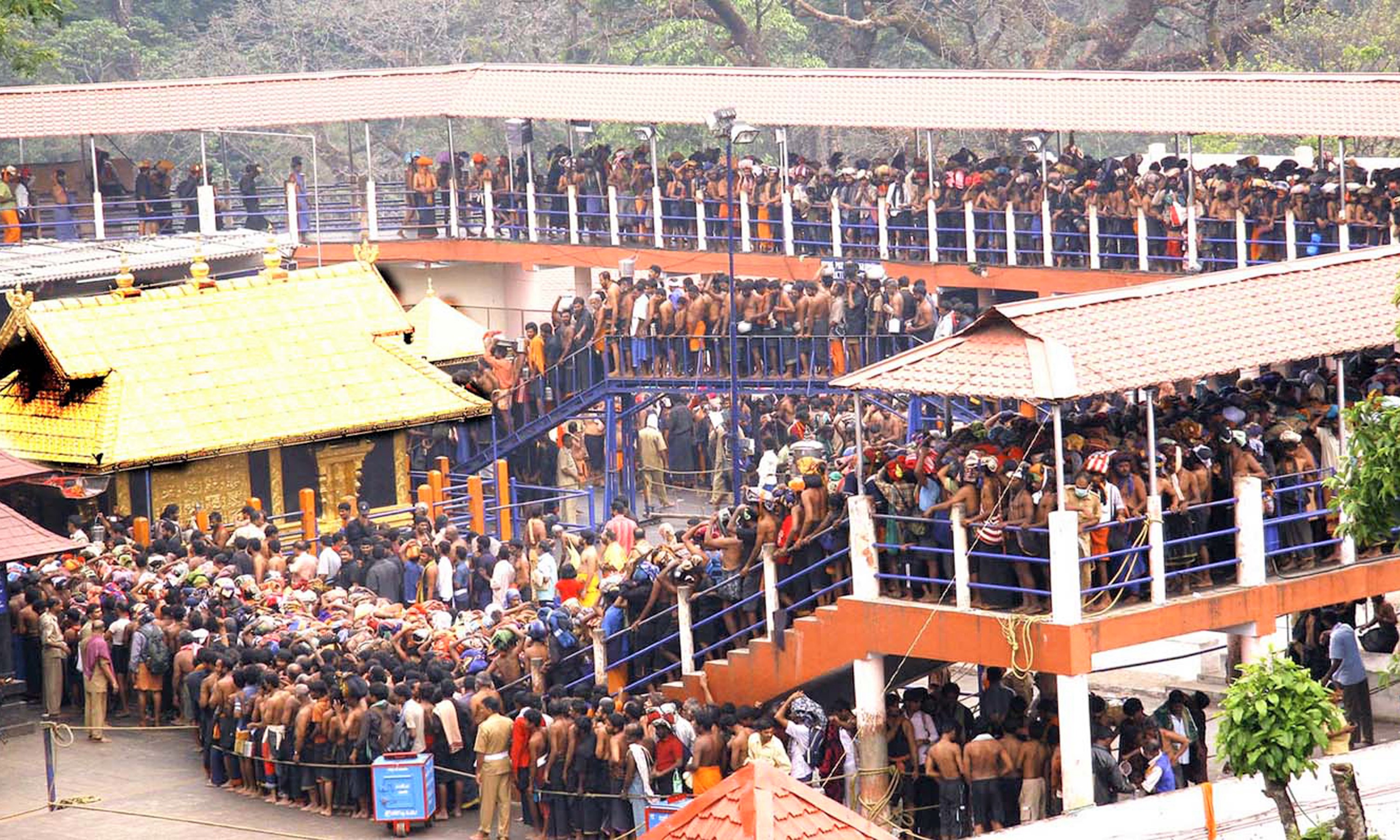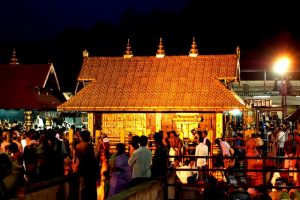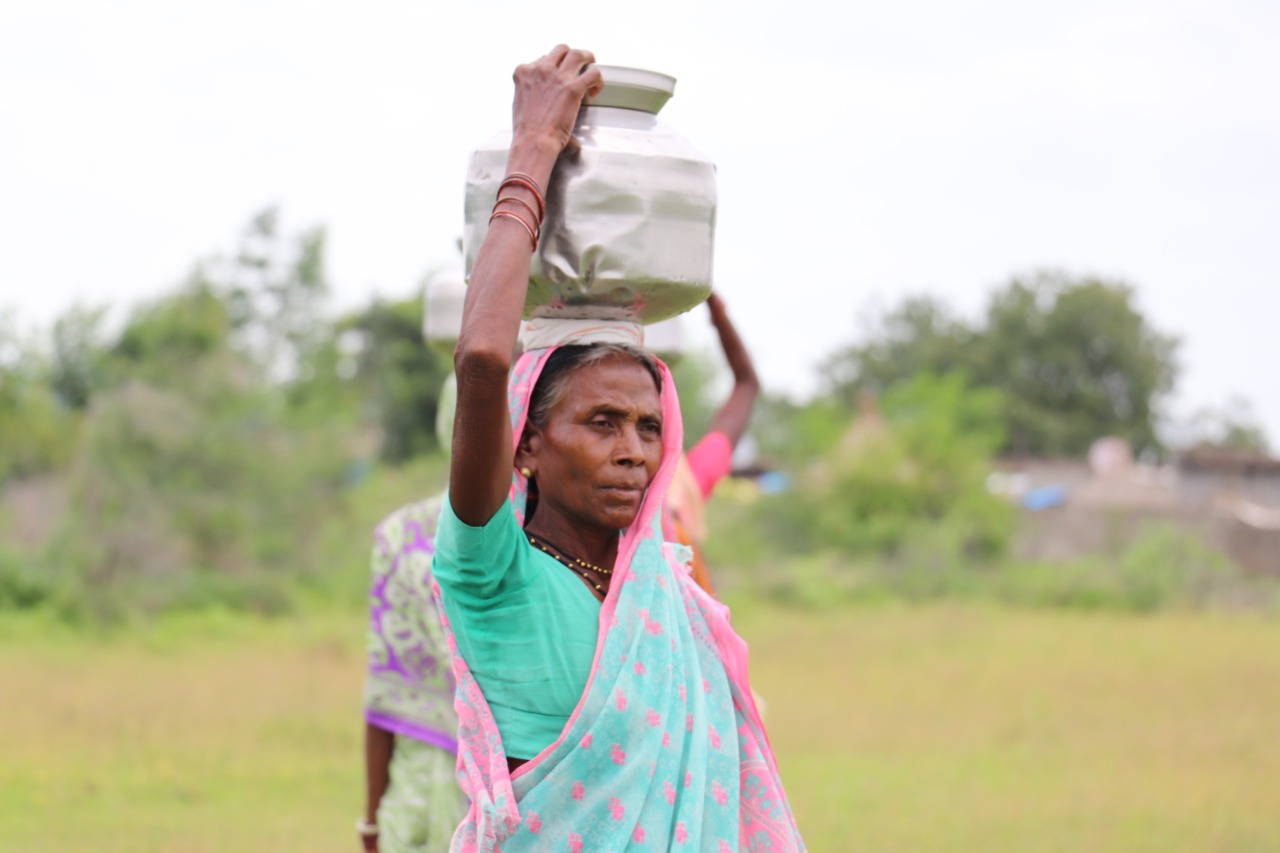- home

- Publication & Resources

- Blog
- NO WOMEN IN SABARIMALA

NO WOMEN IN SABARIMALA
Located in the Western Ghat ranges of Kerala, the Sabarimala temple
is swarmed with thousands of male pilgrims every year – except women.

By Nidhi Joshi
Intern – CASA Communications
The reason, the pilgrimage is propelling on the front page – the selective ban on the entrance of women of in the temple. The temple forbids the entry of women aged between 10-50 years i.e. those in their menstruating age.
A clutch of petitions by the Indian Young Lawyers Association and five women lawyers approached the Supreme Court demanding to allow the entry of women into the temple without age restrictions. Women from the “Happy to Bleed” campaign sought the court’s direction on resisting the societal menstrual discrimination.

Ayyappa Temple, Sabarimala
Looking back in time, the menstruation taboo has been a long prevailing struggle in the country. Religious places like Haji Ali Dargah in Mumbai, Kartikeya Temple in Pushkar, Shani Singnapur in Maharashtra restrict the entry of women due to the menstrual stigma.
Three years ago, Maharashtra’s Shani Shingnapur made headlines when hundreds of women activists marched their way to the temple to protest the ban of women in the shrine’s sanctum. The issue made its way to the Bombay High Court seeking the verdict on the protestors’ side.
With this step of gender equality, the eyes are now on the Sabarimala Case.
A five-judge bench of the Supreme Court headed by Chief Justice Dipak Misra is hearing petitions for the same.
The petitioners contended that a ban is merely discrimination on the basis of sex.
Senior counsel Abhishek Manu Sanghvi, appearing for the Travancore Devaswom board which administers the Sabarimala Ayyappa temple in Kerala said that the basis of the temple practice was related to the celibate form of the deity, “naishtika brahamchari” (eternal celibate). He also argued that women of procreating age are unable to observe the 41 day penance, an important ritual of the pilgrimage.
He explained that the restrictions are not intended as gender exclusion but were based on physiological reasons. Singhvi argued, “There are millions of faiths and beliefs that may not fit into Constitutional morality.”
One of the petitioners, Indira Jaisingh reiterated saying that worshipping is one’s own right.
The most raised question was whether the ban amounts to discrimination against women and violates their constitutional rights.
Justice DY Chandrachud, a part of the five-judge constitutional bench later said, “Every woman is also the creation of God and why should there be discrimination against them in employment or worship.”
With the court still in hearing, and the eyes on Supreme Court, Sabarimala can prove to be a landmark judgment towards gender equality.
Photo Courtesy: Kerala Tourism
 Previous Blog Post HIMALAYAS’ OWN NATURE AND, GARBAGE TRAILS
Previous Blog Post HIMALAYAS’ OWN NATURE AND, GARBAGE TRAILS MOMENTUM BUILDING IN THE RIGHT DIRECTION
MOMENTUM BUILDING IN THE RIGHT DIRECTIONFeatured Post

International Women’s Day -2021
8 Mar 2021
International Women’s Day -2021 is very special for CASA. It’s a delight to announce, CASA with the support of the Church of Sweden has launched an exclusive Gender Desk to emphasise the importance of Gender Justice work. CASA has been working for Gender Justice all throughout and across our constituencies in all these years. Gender Desk comes to add vigour […]

Overcoming Gender and Poverty Barriers
Poverty has been an inevitable problem in India since the beginning of time. The increasing problems of poverty caused by overpopulation and the unequal distribution of wealth among the people have led to a huge impact on the life of millions in the rural as well as the urban area. A person has to acquire […]

Impact of Climate Change on Women
16 Jan 2021
Climate change is a prevailing problem globally whose hazardous repercussions extend beyond the environment. Shrinking glaciers, extinction of plants and animal species, mutation, rise in the Earth’s average temperature and triggered seasonal fluctuations, are some of the impacts of climate change that have already grabbed the headline. Certain early predictions pertaining to climate changes had […]



